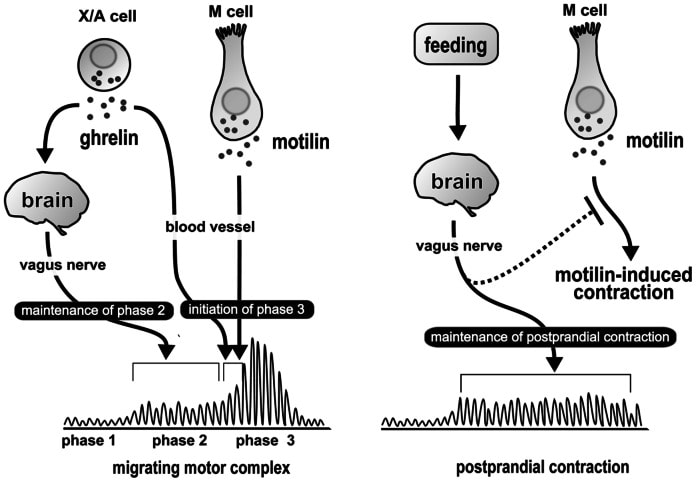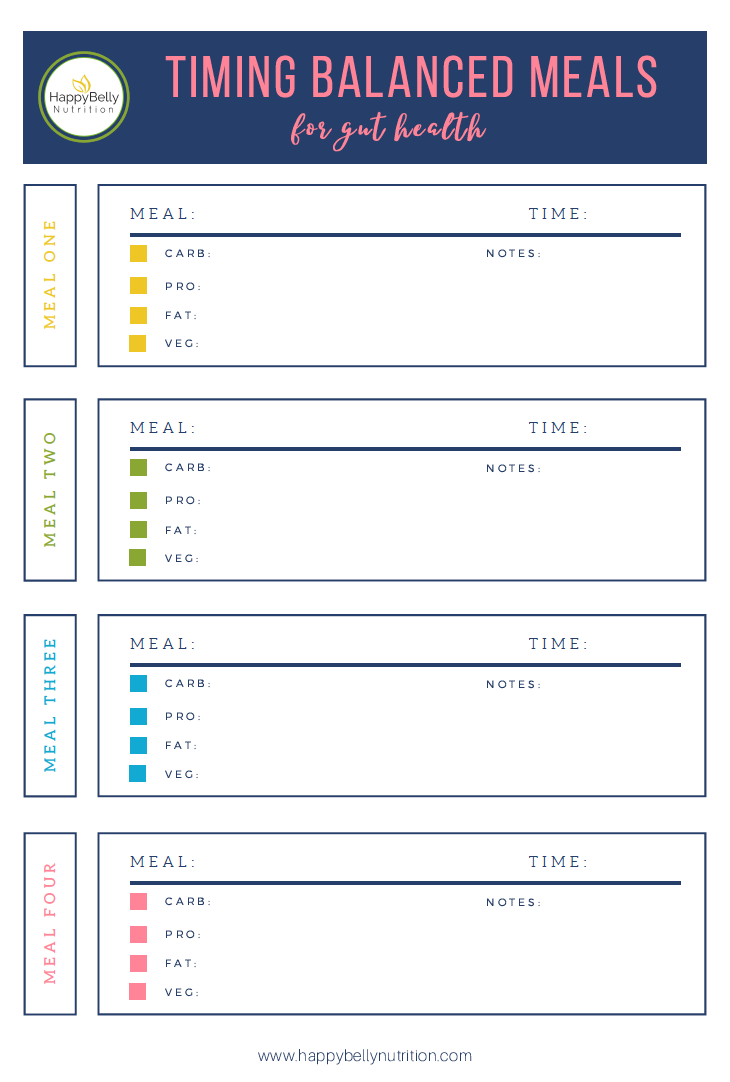|
Did you know that grazing or snacking every 1-2 hours may be impacting your gut health?? The migrating motor complex (aka MMC) is a periodic electrical current that migrates along the entire length of the small intestine. During the interdigestive state (time between meals/fasting) hormones called motilin and ghrelin (hunger hormone) induce these electrical currents by stimulating the vagus nerve. The vagus nerve is the main component of the parasympathetic nervous system and transfers information from the gut to the brain. Cool, right?? The migrating motor complex, MMC, is an essential component to supporting good gut health. These electrical currents help clear away bacteria and debris from the digestive tract, therefore giving the MMC the nickname "intestinal housekeeper". An absent or disordered MMC is associated with SIBO and other functional gut disorders. The Migrating Motor Complex is broken down into THREE separate phases and incorporates the stomach and the small intestine.
Timing Balanced Meals for Gut HealthNow that you understand what the MMC is, I hope you can understand why snacking and grazing between meals can hinder proper clearance of bacteria and debris (no matter how healthy your choices are). These bacteria and debris need to be moved through and out the gastrointestinal tract via stool. Instead of a three meals per day and three snacks per day routine, aiming for at least four hours between meals, is a good practice to support optimal motility and gut health. Since patients with digestive issues often struggle with blood sugar dysregulation, eating FOUR square meals per day can be a great way to keep blood sugars stable, while supporting optimal MMC function. If you can go longer periods of time between meals without feeling "hangry", lightheaded, or fatigued, then three meals per day (with no snacks) is also a great option. Eating four square meals is a great starting point to support gut health!! But the next important step is to make sure they are balanced, including some quality protein and fat (often protein rich foods naturally have some fat), some slow carbohydrates (think whole grains, tubers, fruit), and of course veggies. For patients with gut symptoms, usually cooked veggies are better tolerated. Balancing meals helps keep you full longer and helps balance your blood sugars, providing more stable, lasting energy. So if you are looking to start with two simple dietary changes to help support your gut health, aim to space your meals apart by at least four hours and make sure your meals are balanced! If you want some inspiration, download my FREE handout below to help you time and balance your meals appropriately to enhance your MMC and ultimately your gut health! Have you noticed a difference in your gut health by supporting your MMC?? Share with me below!
Eat Happy, Selva
2 Comments
|
AuthorLike to read? Then get your evidence based nutrition information here! All posts written by Selva Wohlgemuth, MS, RDN Functional Nutritionist & Clinical Dietitian Archives
August 2023
Categories
All
|
Providing custom functional nutrition therapy since 2015.
Follow HBN on Social Media!
©Happy Belly Nutrition, LLC 2015-2023
Proudly powered by Weebly




 RSS Feed
RSS Feed


